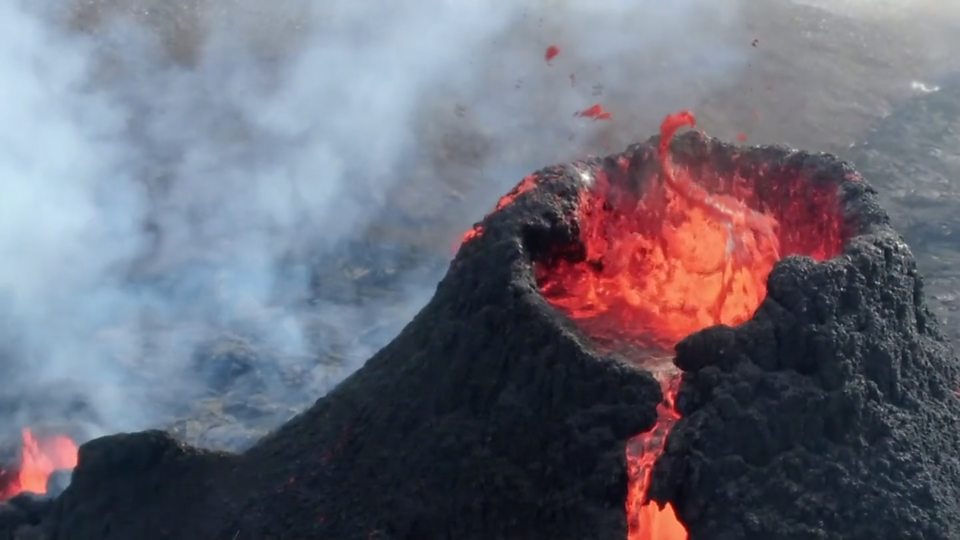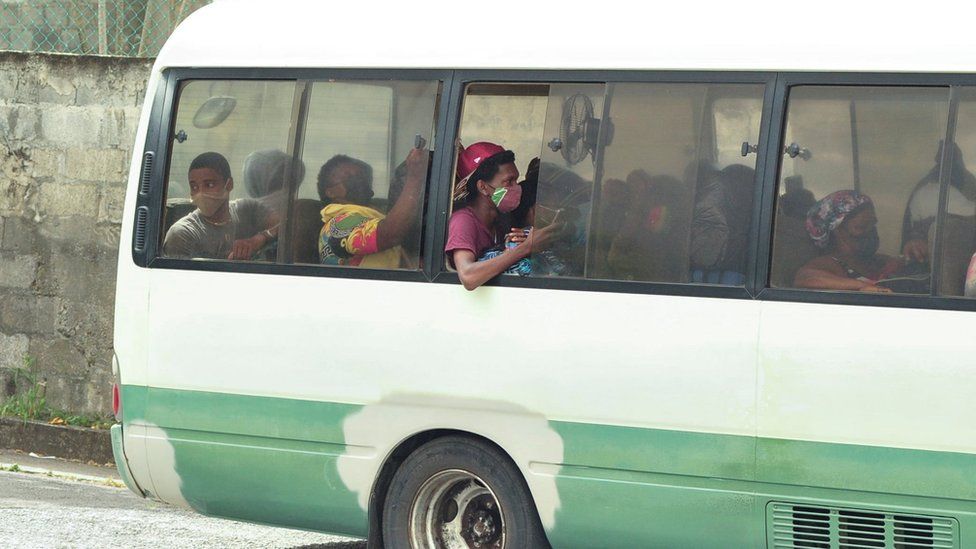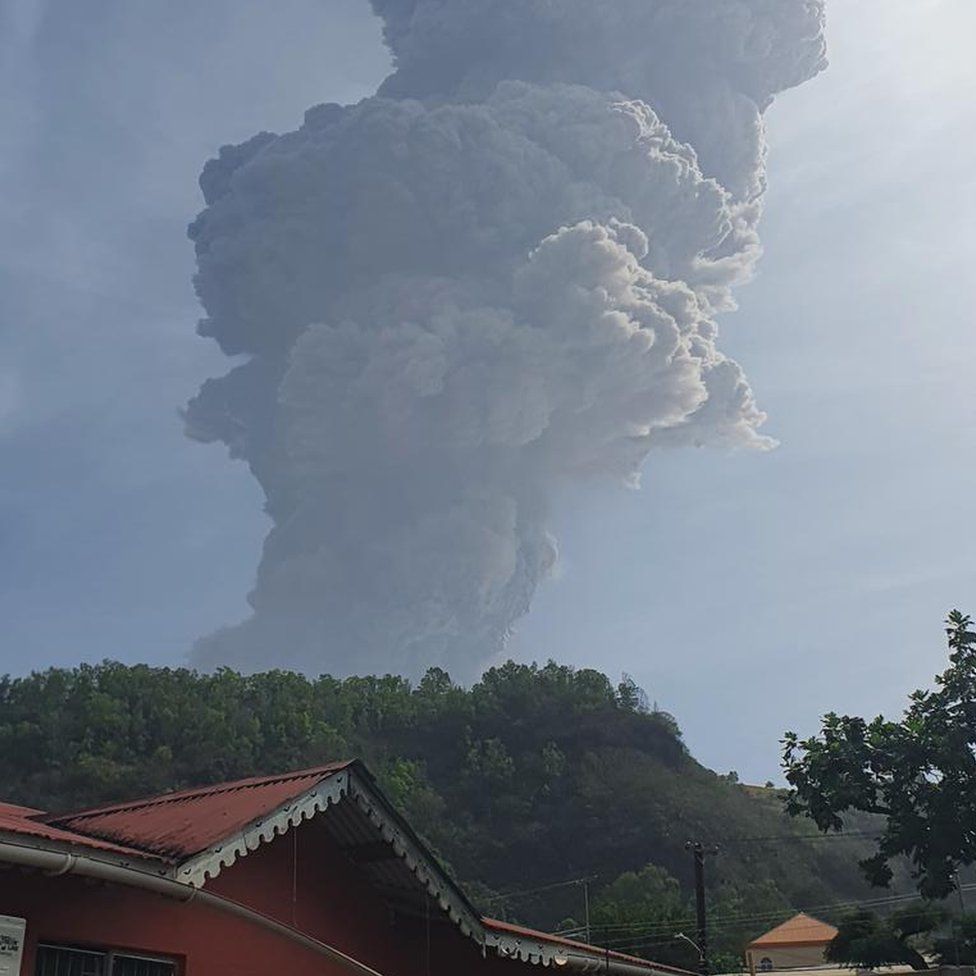An “explosive” volcano eruption has blanketed the Caribbean island of St Vincent in ash and smoke and forced thousands of people out of their homes.
La Soufrière, which has been dormant for decades, first started showing volcanic activity in December which picked up this week.
On Thursday, Prime Minister Ralph Gonsalves urged more than 16,000 residents in “red zones” to evacuate.
The volcano has since spewed dark ash plumes 6 km (3.7 miles) into the air.

Ash fall has been recorded as far from the volcano as Argyle International Airport, St Vincent’s National Emergency Management Organisation (NEMO) said.
The volcano had been dormant since 1979, but in December it started spewing steam and smoke, and making rumbling noises.

The first sign that an eruption was imminent came on Thursday evening, when a lava dome was suddenly visible on La Soufrière.
In response, that same night, Mr Gonsalves ordered an urgent evacuation of the surrounding area.
Then just before 09:00 on Friday (13:00 GMT), seismologists from the University of the West Indies confirmed that an “explosive eruption” was under way.
Evacuees were taken to cruise ships and safer parts of the island.

Lavern King, a volunteer at shelters on the island, told Reuters news agency: “People are still being evacuated from the red zone, it started yesterday evening and into last night. The place in general is in a frenzy.”
Later on Friday another explosion was recorded, the UWI Seismic Research Centre tweeted.
Mazzaltov World News is not responsible for the content of external sites.View original tweet on Twitter
Most of the Lesser Antilles islands are part of a long volcanic arc in the Eastern Caribbean.
The last eruption, in 1979, caused more than $100m (£73m) of damage on the island.
The worst eruption on record, in 1902, killed more than 1,000 people.
Local media have also reported increased activity from Mount Pelee on the island of Martinique, north of St Vincent.